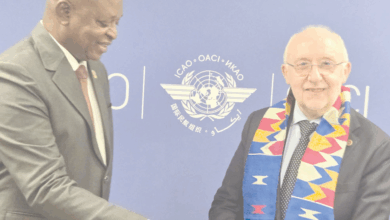Prof. Adekunle Alli: Bala Wunti and the challenges of reform in Nigeria’s oil sector

The Nigerian oil and gas sector has long been described as both the backbone of the economy and the epicenter of its governance challenges. Within this space, Bala Maijama’a Wunti has emerged as a familiar figure, having spent decades inside the Nigerian National Petroleum Company Limited (NNPC Ltd.) and its subsidiaries. His career highlights the recurring tension between reformist ambition and the structural constraints of Nigeria’s most strategic industry.
Wunti’s work first drew attention when he headed NNPC’s Efficiency Unit, where he introduced a corporate-wide framework to curb waste and improve accountability. Later, as Business Adviser to the Group Managing Director, he championed supply-demand models credited with easing the fuel queues of 2016. At the Petroleum Products Marketing Company (PPMC), he pursued automation and transparency measures, including the “Operation White” program, designed to track fuel distribution and reduce diversion. The initiative was said to increase internal revenue by over N2 billion annually.
His roles extended into higher-stakes negotiations. As Group General Manager, Corporate Planning and Strategy, Wunti was involved in settling deepwater contract disputes that unlocked billions in new investments and reduced Nigeria’s liabilities. He also oversaw the expansion of NNPC’s stake in the Escravos Gas-to-Liquids plant, a deal now worth more than $1 billion.
Perhaps his most visible assignment came as Chief Investment Officer of the Nigerian Upstream Investment Management Services (NUIMS). During the COVID-19 pandemic, NUIMS coordinated industry-funded interventions that delivered hospitals and medical supplies across the country. Wunti also pushed for an industry-wide security framework aimed at tackling crude oil theft, a move credited with restoring hundreds of thousands of barrels per day in lost output. NUIMS went on to earn ISO 9001 certification, an unusual recognition for a Nigerian public body.
More recently, Wunti has played a part in one of the sector’s most significant reforms: the transition of NNPC from a corporation into a limited liability company. He contributed to rebranding and strategic planning efforts intended to make the entity more commercially viable. The effectiveness of this transition, however, remains to be fully tested in a sector where political influence often trumps commercial logic.
Supporters point to Wunti’s academic grounding—an MBA from Abubakar Tafawa Balewa University, programs at Harvard Business School, and training at Oxford’s Blavatnik School—as evidence of his technical preparation for the roles he has held. He is also active in professional associations, including the Chemical Society of Nigeria.
Yet, despite these credentials and accomplishments, the broader questions remain. Fuel queues resurface periodically despite earlier interventions. Oil theft, while reduced in some periods, continues to challenge revenue stability. And while reforms have introduced greater process discipline, the industry still grapples with underinvestment and governance deficits.
Bala Maijama’a Wunti’s career underscores both the progress possible under committed leadership and the stubborn realities of Nigeria’s oil industry. His story is less about a single technocrat’s achievements than about the ongoing struggle to bring lasting efficiency and transparency to a sector on which the country’s fortunes still heavily depend.
Prof. Alli, a research professor writes in from Lagos





